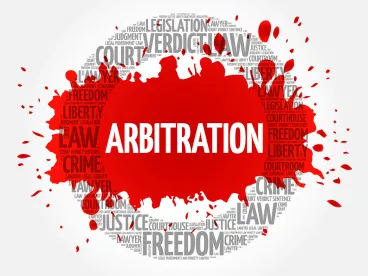Whether a motion to compel arbitration will be granted depends on, among other things, whether the arbitration provision is broad or narrow and whether the dispute falls within the scope of the arbitration provision. In a recent case, a California federal court construed unique language in an arbitration provision in a reinsurance agreement, granted the motion to compel arbitration and stayed the litigation.
In Nationwide Agribusiness Insurance Co. v. The Hartford Steam Boiler Inspection and Insurance Co., No. CV19-00531 JAK-KK, (C.D. Calf. Oct. 18, 2019 (Not Reported), the cedent issued an agribusiness policy to an organic date farm that included equipment breakdown coverage. The policy was reinsured. A power outage resulted in a shutdown of the policyholder’s refrigeration system, which caused extensive damage and loss of business. The cedent paid a substantial claim and sought recovery under the reinsurance agreement. The reinsurer refused to pay. The cedent brought suit for declaratory relief that the arbitration clause in the reinsurance agreement did not apply, that the reinsurer was required to reimburse the cedent and for breach of contract. The reinsurer moved to compel arbitration and to dismiss or stay the litigation. The district court granted the motion to compel and, in its discretion, stayed the litigation.
In granting the motion to compel, the court analyzed whether the language of the arbitration clause, which in one section provided that “[a]ll disputes or differences arising out of the interpretation” of the reinsurance agreement, was broad enough to encompass the parties’ dispute. The court also addressed the two tier arbitration clause, which first had a paragraph addressing how a disagreement over a loss that the parties agreed was covered but disagreed as to what proportion of the loss each was required to pay was to be resolved.
The court rejected the cedent’s argument that the first clause was a gate-keeping provision restricting the claims to be arbitrated under the second clause. The court found the cedent’s interpretation unconvincing for several reasons, including that the second paragraph “clearly refers to ‘[a]ll disputes or differences arising out of the interpretation of this [Reinsurance] Agreement.'” The court held that under the cedent’s interpretation, the scope-defining language in the second paragraph would be rendered superfluous. The court also noted that neither paragraph referred to the other and that the cedent’s interpretation was inconsistent with the established principle that any doubts concerning the scope of arbitrable issues should be resolved in favor of arbitration.
The court also held that all of the cedent’s claims arose out of the interpretation of the reinsurance agreement, even though in the 9th Circuit “arising out of” language shows that it is a more narrow arbitration clause that applies only to disputes about the contract. The court rejected the cedent’s argument that the dispute was over the scope of the equipment breakdown coverage in the underlying policy because the reinsurance agreement incorporated key defined terms from the reinsured contract.
The court did give some credence to the cedent’s argument that the narrow scope of the arbitration clause limited the dispute to questions of contractual interpretation and not factual disputes. But even though this language, deemed by the court to be unique, was present in the arbitration clause, the phrase “arising out of the interpretation” of the reinsurance agreement did not preclude arbitration of related legal and factual issues that are part of a dispute. The court rejected the cedent’s interpretation as having little force because the outcome the cedent suggested was problematic and would lead to an unusual and unwarranted result.
Finally, the court addressed the controversy over whether a district court should dismiss or stay litigation when granting a motion to compel. The court ruled that in the 9th Circuit the district court has discretion to dismiss an action. The court, however, decided to stay the litigation as a more efficient process to address subsequent proceedings after the arbitration.




 />i
/>i

